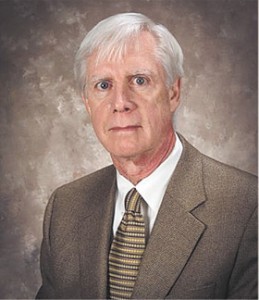
I had a call today from the son of one of my clients who recently passed away. She had an IRA and he and his brother were named as beneficiaries. His questions were a perfect lead in to an article in Kiplinger concerning inherited IRA’s, which, if not handled correctly, can lead to unpleasant consequences. For non-spousal beneficiaries of an IRA, attention to detail is important to protect tax-deferred growth and avoid unwanted taxable income and/or penalties. Most of you know that owners of traditional IRA’s have to start taking distributions at age 70.5. Non-spouse beneficiaries of any age who want to “stretch” the IRA over their life expectancies must start their RMD’s the year following the year the owner died. Taxes will be paid on the distributions of deductible contributions and earnings from a traditional IRA. Also, please note that non-spouse beneficiaries of Roth IRA’s have to take withdrawals, even though they will be tax free. Not taking a distribution will result in a 50% penalty on the amount that should have been withdrawn.
A non-spousal beneficiary cannot roll an inherited IRA into their own IRA. A separate account must be set up with a title that includes the decedent’s name and the fact that the account is for a beneficiary. For example, “Jane Doe (deceased December 1, 2015) IRA for benefit of Tom Doe”. If the account is split between several beneficiaries, each new IRA has to be properly titled. New successor beneficiaries should be named. If this is confusing, I suggest a visit to your financial and tax advisors. If there are multiple beneficiaries, the account should be split among the respective parties. If not done, the distributions will be calculated based on the age of the oldest beneficiary. This can make a big difference in the longevity of the benefits of the IRA to younger beneficiaries.
Another quirk occurs when there are “non-person” beneficiaries, such as a charity. The non-person share must be paid out by September 30th, or the year following the owner’s death. If that share is not paid out in a timely manner and the account is not split, the remaining beneficiaries will not be able to take withdrawals over their life expectancies. They will have to empty the account within five years if the deceased person died prior to 70.5; if later, distributions are taken over the decedent’s life expectancy. All of this can be confusing, but following the rules is particularly important with inherited IRA’s. Please be sure and meet with your advisors to insure that you are not surprised by unexpected penalties from the IRS when a small detail is overlooked.
“Empty.” A small word with enormous meaning. Another call came in last week asking for a phone number for a local funeral director. The call was from the wife of my college roommate who was on life support at the time—a college roommate that I had lost touch with for the most part. Yes, I knew where he lived and that he had retired and that his kids lived here and there. But, I had not talked with him face to face for years, and had not taken the time to correct the omission. Several weeks before this phone call, a few of us, including my roommate, had started planning a reunion. It never took place and never will, at least not with the deceased, at least not in this life. A lesson learned—like so many—the hard way. There is now an empty space in my life that can never be filled. Take heed my friends: make the effort to reconnect and renew your relationships. It is not too late and it will be worth the effort. Enlist your friends to help make it happen. Finally, from a daily meditation in Forward, “In prayer, we are invited and encouraged to bring our secrets to God. And God always listens, even when we do not feel calm enough to listen for God’s response. Even when we cannot find the words, God listens to our deepest truths, aches, joys and secrets.” I will miss my friend. My prayers for his family are constant. I hurt, but will heal. I hope I remember the lesson.
Although this information has been gathered from sources believed to be reliable, it cannot be guaranteed. This material is intended for informational purposes only and should not be construed or acted upon as individualized tax, legal or investment advice. FSC Securities Corporation does not offer tax or legal advice. The views expressed are not necessarily the opinion of FSC Securities Corporation. Financial Solutions Group is a marketing name. Financial Solutions Group is located at 128 Versailles Blvd, Alexandria, LA 71301. We can be reached at (318) 448-3201. Securities, insurance and advisory services offered through FSC Securities Corporation, member FINRA/SIPC.









